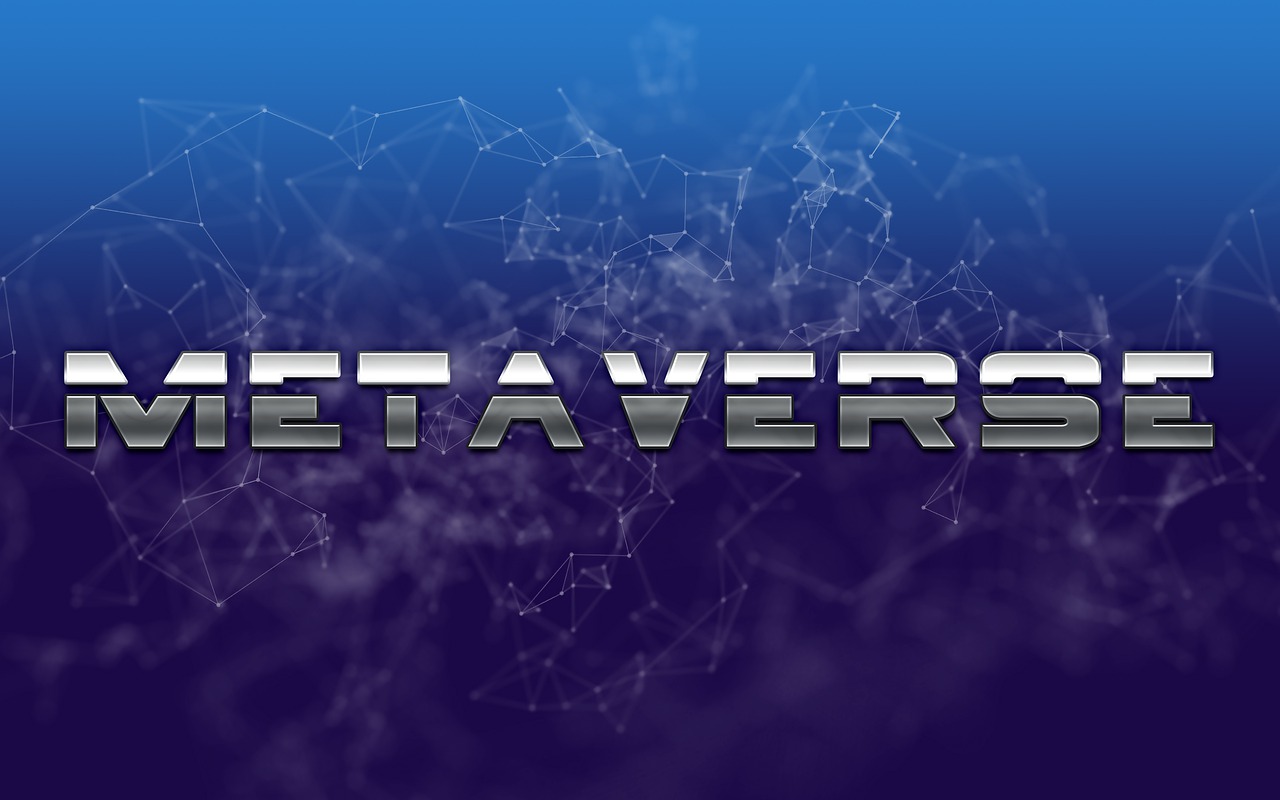Top 8 Decentralized Crypto Wallets To Consider In 2023

Decentralized crypto wallets, also known as non-custodial or self-custody wallets, provide users with complete control over their private keys.
This article reviews the best-decentralized crypto wallets for smartphone and desktop users. We also discuss decentralized hardware wallets, which may interest long-term investors.
Understanding The Concept Of A Decentralized Wallet
Decentralized wallets empower users by granting exclusive access to their private keys, ensuring complete control over their cryptocurrency investments. In contrast to centralized wallets, which lack user autonomy, decentralized wallets enable the secure storage of digital tokens.
Secure Storage Through Private Key Control
Decentralized wallets provide a haven for cryptocurrency tokens since users retain control over their private keys. Conversely, centralized wallets, typically offered by cryptocurrency exchanges or brokers, do not provide users access to their private keys. Consequently, users must trust the centralized provider to safeguard their funds.
Simplified Access With Enhanced Security
When setting up a decentralized wallet, you usually come across private keys presented in a simplified format. Often, they are given a 12-word passphrase that you need to enter accurately.
However, it is crucial to note that even in this simplified form, the decentralized wallet provider never gains access to the private keys. As a result, users bear the responsibility of diligently safeguarding their wallets. In the unfortunate event of a compromised wallet or misplaced private keys, the provider cannot assist in the recovery of the funds.
By utilizing decentralized wallets, users can assert control over their crypto investments and enhance the security of their digital assets, ensuring peace of mind and autonomy in the ever-evolving landscape of cryptocurrencies.
Discover The Top 8 Best Decentralized Crypto Wallets
Here’s an overview of the best-decentralized crypto wallets in 2023:
MetaMask:
Over 30 million investors utilize this decentralized wallet. MetaMask, available as a mobile app and browser plugin, supports all ERC20 tokens. Other network standards supported include Polygon, Avalanche, Binance Smart Chain, and Arbitrum. However, MetaMask does not work with Bitcoin.
Pros & Cons MetaMask
Pros
- Free, decentralized wallet app and browser extension
- One of the best-decentralized crypto wallets for storing ERC20 tokens
- Supports NFT storage
- In-built staking and token swap tools
Cons
- Charges 0.875% for token swaps
- Staking supports only Ethereum.
- It is incompatible with Bitcoin, Solana, Cardano, and other leading cryptocurrencies.
Trust Wallet:
Launched in 2017, Trust Wallet is also available as a mobile app or browser extension. Not only does Trust Wallet support Bitcoin – but 70 other network standards. Trust Wallet is also suitable for accessing the decentralized web.
Pros & Cons Trust Wallet
Pros
- Used by over 60 million crypto investors
- Compatible with over 4.5 million cryptocurrencies and NFTs
- Easily access dApps like Uniswap and OpenSea
- No fees when using the in-built staking tool
Cons
- Uses MoonPay and Simplex for debit/credit card payments
- No support for Firefox browsers
OKX:
Backed by one of the world’s largest crypto exchanges, OKX is a decentralized wallet app for iOS and Android users. It supports dozens of blockchain standards and aggregates data from over 200 DeFi platforms. This allows OKX users to swap tokens to earn interest at market-leading rates. However, Bitcoin is not supported.
Pros & Cons OKX
Pros
- Best decentralized crypto wallet app for iOS and Android
- Aggregates APYs and exchange rates from over 200 DeFi platforms
- Supports NFT storage and trading
- Compatible with dozens of blockchains, covering some of the best-emerging cryptocurrencies
Cons
- Does not support Bitcoin
- Not the most user-friendly wallet on the market
Trezor:
This hardware wallet provider offers a cold storage solution for long-term investors. Trezor retails for $69 or $219, depending on the chosen model. Not only does Trezor remain offline at all times, but users need to enter a PIN to transfer funds. This is one of the most secure decentralized wallets and the least convenient.
Pros & Cons Trezor
Pros
- Best decentralized cryptocurrency wallet for beginners
- Compatible with hundreds of thousands of cryptocurrencies and NFTs
- Only users have access to their private keys
Cons
- It does not directly support in-wallet token swaps
- Staking is only available when connecting to a dApp
- No browser extension
Coinbase Wallet:
Backed by the Coinbase exchange, this decentralized wallet is compatible with iOS and Android devices. It supports thousands of cryptocurrencies and NFTs from multiple blockchain networks. Users have complete control of their private keys when using the Coinbase Wallet.
Pros & Cons Coinbase Wallet
Pros
- Best decentralized cryptocurrency wallet for beginners
- Compatible with hundreds of thousands of cryptocurrencies and NFTs
- Only users have access to their private keys
Cons
- It does not directly support in-wallet token swaps
- Staking is only available when connecting to a dApp
- No browser extension
Electrum:
One of the original Bitcoin wallets, this decentralized desktop program is available with Windows, Mac, and Linux. There is also an Android app, but no support for iOS. Electrum lets users keep their private keys offline, providing a secure, cost-effective alternative to hardware wallets.
Pros & Cons Electrum
Pros
- No-frill decentralized wallet for desktop devices
- It also supports an Android app
- Keep private keys in cold storage at all times
- Completely free of charge
Cons
- Only supports one cryptocurrency – Bitcoin
- No trading features
- Does not support interest yields
Crypto.com:
Used by over 80 million people, Crypto.com is a popular exchange that also offers a decentralized wallet app. This top DeFi wallet comes packed with features, including interest accounts, an NFT marketplace, and an in-built token swap tool.
Pros & Cons Crypto.com
Pros
- Supports over 30 blockchain networks
- Compatible with Windows, Mac, iOS, Android, and Chrome
- In-built interest accounts for over 25 cryptocurrencies
- Buy and sell NFTs
Cons
- It does not display token swap fees
- Higher interest yields are available on external dApps
BitAddress:
This provider offers free paper wallets, enabling users to keep their crypto tokens offline. A new wallet address is created in seconds; one can print private keys via a QR code. The following sections of this tutorial will discuss the providers from the above-mentioned decentralized wallet list.
Pros & Cons BitAddress
Pros
- Create unlimited Bitcoin paper wallets
- Completely decentralized – private keys are encrypted
- Free of charge
- QR codes represent wallet addresses and private keys
Cons
- Not suitable for active crypto traders that regularly move funds
- It does not support altcoins
Benefits Of Using A Decentralized Crypto Wallet
Decentralized wallets offer distinct advantages such as exclusive control over private keys, interaction with dApps, and quicker transaction processing.
Here are some of the advantages of keeping cryptocurrency in a decentralized wallet.
Complete Control Of Crypto Tokens
The fundamental advantage of decentralized wallets is that users retain control over their assets. This is because only the user has access to their private keys.
As a result, only the user can authorize outbound transactions. Furthermore, entities – the wallet provider or the government – cannot access the crypto money.
This enables people to keep their wealth outside of the traditional banking system. In other words, unlike centralized exchanges, consumers do not need to trust decentralized wallet providers.
Faster Transactions
Compared to centralized solutions, the best-decentralized crypto wallets provide much quicker transaction speeds.
A third party does not need to authorize the transaction, which is why this occurs.
- For example, consider the process of storing crypto tokens on a centralized exchange.
- First, the user would need to request a withdrawal from the exchange
- The user would need to wait for the business to approve the transfer
- This could take minutes, hours, or days – this can vary widely depending on the centralized exchange
- Once consented, only then will the crypto tokens be transferred to the recipient
In comparison, there is no third-party approval process with decentralized wallets. The wallet owner will execute the transaction on the blockchain once they verify it.
Store A Great Number Of Tokens
The number of supported tokens is sometimes limited when utilizing a centralized wallet. This is because users may only store tokens that the exchange supports.
In comparison, the top DeFi wallets allow you to store hundreds, if not millions, of bitcoins.
Consider Trust Wallet as an example. According to our research, Trust Wallet is interoperable with approximately 70 blockchain networks and 4.5 million coins and NFTs. This enables investors to store their digital assets in a single, secure location.
Access Web 3.0 dApps
Web 3.0 dApps are easily accessible with the top decentralized crypto wallets.
Some of the most commonly supported dApps include:
- UniSwap
- SushiSwap
- PancakeSwap
- OpenSea
- Compound
- Yearn. finance
But there are hundreds more. Crucially, these dApps offer access to decentralized finance tools, such as token swaps, staking, yield farming, and dual investments.
Anonymity
Another appealing characteristic of decentralized crypto wallets is their total anonymity. This implies that users may establish a wallet without giving any personal or contact information.
Users only need to access their wallets with their password or private keys.
Exploring The Security Measures Of Decentralized Crypto Wallets
When utilizing a decentralized wallet, it is essential to understand that no reliance on a third party is necessary. These wallets serve as a connection between cryptocurrency transactions and the blockchain. However, it is crucial to recognize that decentralized wallets are susceptible to remote hacking and theft. Users must adopt sensible security practices to safeguard their crypto funds.
Enhancing Security Measures For Mobile Wallets:
1.1 Setting a Strong PIN: Mobile wallet users should prioritize using a robust personal identification number (PIN).
1.2 Implementing Lock-Screen Password: In addition to a PIN, it is advisable to have a lock-screen password for the smartphone. These measures provide an added layer of protection against unauthorized access.
Mitigating Risks for Desktop & Browser Extension Wallets:
2.1 Beware of Phishing Attempts: Hackers can exploit decentralized wallets through deceptive links. For instance, scammers may impersonate the wallet’s support team and send fraudulent links to users.
2.2 Avoid Clicking Unknown Links: Never click on links from unfamiliar sources, whether received via social media or email, to prevent falling victim to such scams.
Optimal Security Measures:
3.1 Offline Storage: Keeping the crypto wallet offline is the safest option. You can achieve this by installing the wallet on a non-internet-connected, inexpensive smartphone or utilizing a paper wallet stored securely away from potential theft or damage.
3.2 Balancing Convenience & Security: While software wallets offer convenience for active trading and investment, it is crucial to recognize that private keys are always vulnerable to hackers. Therefore, it is advisable only to store small amounts of cryptocurrency in software wallets.
Decentralized wallets provide a reliable bridge for crypto transactions, eliminating the need to trust third parties. However, users must be proactive in ensuring the security of their funds. By following recommended security practices, such as using solid PINs, avoiding suspicious links, and considering offline storage options, users can maximize the safety of their decentralized wallets.
How To Select The Best Decentralized Crypto Wallet?
Choosing a decent wallet is an essential step in the cryptocurrency investment process.
As a result, this section focuses on the most crucial criteria to consider while selecting the best-decentralized crypto wallet.
Security
Decentralized wallets provide users private keys, ensuring wealth is built and maintained without third parties.
However, decentralized wallets are still vulnerable to hackers. Users must consider the security features included when choosing the best-decentralized wallet.
For example:
- A PIN secures mobile wallets like Trust Wallet and MetaMask
- A password connects desktop and browser-based wallets
- Cold storage connects hardware wallets. Users must also enter a PIN on the device to transfer funds.
In comparison, centralized wallets offer additional security features. This can include device allow listing, two-factor authentication, and even insurance.
Supported Networks
The number and type of blockchain networks supported by decentralized wallets will vary wildly. For example, Trust Wallet supports over 70 networks. This includes Bitcoin, Solana, Cardano, Litecoin, and some of the best meme coins – like Dogecoin and Shiba Inu.
In contrast, Electrum only supports one cryptocurrency – Bitcoin. Users should choose a decentralized wallet to check which networks and cryptocurrencies are backed.
Device Type
Consider the most convenient and secure device type to store the decentralized crypto wallet. Options include desktop software, browser extensions, and mobile apps.
For offline storage, consider a hardware or paper wallet.
User-Friendliness
Another factor to consider is user-friendliness.
For instance, beginners should explore whether the decentralized wallet suits their skill set. Sending and receiving crypto should be simple, as should setting up and securing the wallet.
More experienced crypto investors might seek a crypto wallet with more advanced features. For example, Electrum offers multi-signature permissions. While this adds excellent security to the wallet, this feature is unsuitable for newbies.
Investment & Trading Features
The best-decentralized wallets enable users to maximize their crypto investments. For example, OKX has an in-built aggregator tool that connects to over 200 dApps.
Users can search for the crypto they currently hold in the OKX wallet and locate the highest APYs available. OKX also comes with an in-built token-swapping tool, not to mention a fully-fledged NFT marketplace.
In contrast, the likes of BitAddress and Electrum do not offer any such features.
Conclusion
In conclusion, decentralized wallets provide several advantages to cryptocurrency investors. This includes having complete control over the wallet’s private keys, allowing investors to act as their bank.
Decentralized wallets are also perfect for connecting to Web 3.0 apps while staying anonymous. However, keep in mind that decentralized wallets introduce danger.
Likely, the crypto money cannot be recovered if someone hacks the wallet or the user loses their private keys.
As a result, while picking a decentralized wallet, it is critical to exercise caution. Consider ease, user-friendliness, supported networks, and DeFi features like staking and token exchanges in addition to security.
FAQs
Which wallets are decentralized?
There are dozens of decentralized crypto wallets in the market – ranging from MetaMask and Trust Wallet to Electrum and OKX.
What is the safest decentralized crypto wallet?
The most secure decentralized wallets are hardware-based, with providers like Trezor and Ledger Nano leading the market.
Is Coinbase Wallet decentralized or centralized?
The Coinbase Wallet is a decentralized wallet operating independently of the central Coinbase exchange.
Is Trust Wallet decentralized or centralized?
Trust Wallet is a decentralized wallet for iOS, Android, and Chrome browser extensions.
What fees do decentralized wallets charge?
Most decentralized wallets are free to use and maintain, with users only needing to cover GAS fees when transferring funds.
How secure are decentralized crypto wallets?
While Decentralized wallets give users complete control of their private keys away from centralized third parties, they are not immune to remote hacking attempts.








